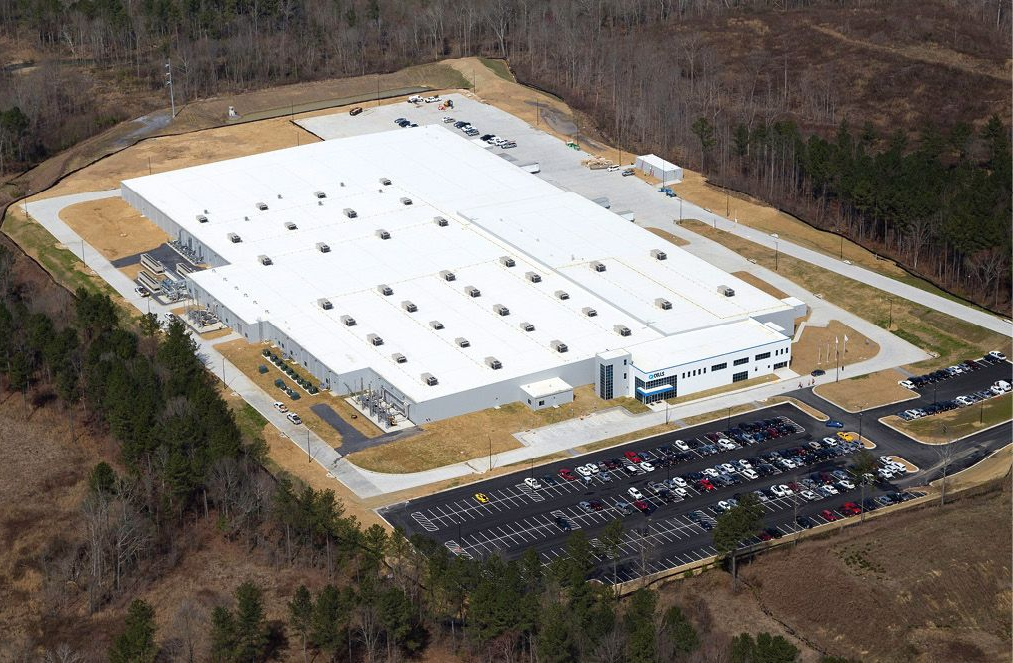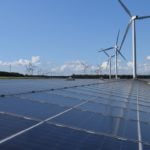Nick Hill could be handed a compulsory purchase order for cables to be put under his land (Image: Nick Hill)
The government has been labelled a “dictatorship” by furious campaigners after Energy Secretary Ed Miliband pushed through the UK’s biggest-ever solar farm on agricultural land. The Tillbridge Solar Project was approved by Labour for a 3,000-acre site in Lincolnshire this week despite widespread opposition from councillors, MPs and landowners who risk losing business from the government’s latest stride towards its Net Zero goals. Nick Hill, 55, a first-generation farmer in West Lindsey, Gainsborough, could be most impacted by the development, with a potential cable corridor for the project earmarked for the middle of his newly-acquired estate.
The renewable energy project’s status as a Nationally Significant Infrastructure Project (NSIP) means those behind it can apply for Compulsory Purchase Orders (CPO), effectively leaving Mr Hill no choice but to take the compensation. “I bought all the land we have here myself, and I’m quite proud of that,” he told the Express. “People might think it’s crazy, going into farming when there’s so little money to be had, but it’s something I wanted to do. If they get permission to put cables under the fields, it will massively impact our future here.”
Solar panels could take over the British countryside, campaigners warn (Image: Getty)
It comes amid continued criticism of the government’s introduction of a 20% inheritance tax on agricultural land worth over £1 million, replacing the exemption currently in place. Labour says the change will only impact the country’s 500 wealthiest farmers but the Country Land and Business Association estimates that up to 70,000 farms could be affected overall. The Daily Express has called for a U-turn on the policy as part of the Save Britain’s Family Farms campaign.
“I’ll carry on fighting but I’ve got a strong feeling we’ll be handed a CPO at any minute,” Mr Hill added. “It’s so frustrating. And it’s not just this project either – there are three other NSIP solar farms in West Lindsey, which will add up to 10,000 acres of land lost to panels. I think it’s ridiculous.
“What if there’s a war and we can’t get any food in from abroad? Where’s the security? I despair with Ed Miliband who’s giving rich developers exactly what they want on a plate. It feels a lot like a David versus Goliath battle that I’m fighting. It doesn’t seem like we’re being heard at all.”
Alongside Tillbridge, the Gate Burton and Cottam solar projects have also been approved in Lincolnshire since Labour came to power, with the nearby West Burton Solar Park still in the pipeline. All four of the proposals include arable farmland and collectively total around 10,000 acres.
“The government’s meant to work for us,” Simon Skelton, of local campaign group 7000 Acres, said. “But it feels like a Net Zero dictatorship at the moment. Labour are zealots and they’re approving these projects on an ideological basis, not a practical one.”
Mr Skelton said Lincolnshire has become a microcosm of the problem he thinks will soon be facing the entire British countryside – hundreds of thousands of acres packed with solar panels, with near-unanimous backlash brushed aside by the decision makers.
“They’re gaslighting the public,” he added. “They keep saying it will be less than 1% of land, but I’d say that up to 20% of the farmland in my area is being lost to solar. There has been no compromise or compassion for the people impacted by these massive schemes. You come to live in the countryside for a reason – you don’t come here to be in a solar desert.”
Nick Hill bought his land in 2022 and is a first-generation farmer (Image: Nick Hill)
The Tillbridge project will be larger than any existing solar farm in the UK once built and is just the latest of its kind to be greenlit by Mr Miliband, many of which will be developed in eastern England, a region targeted for its low population, high levels of sunshine and cheap agricultural land.
The Energy Secretary published a “solar roadmap” in June, laying out plans for further increases in solar energy production, including an increase of existing capacity from 18 gigawatts to 57 gigawatts within five years.
Not everyone thinks it’s the right way forward, however. “At the end of the day, you’re beholden to how many hours of sunlight and daylight you get in a day with these developments,” Mr Skelton said. “And part of the reason energy bills are so high is because of renewable energy subsidies. They’re destroying the countryside and the economy at the same time.”
“If these projects all go ahead, I’ll see solar panels everywhere I drive,” he added. “It’s a horrendous thought. They should be making this shift gradually and gently, to see if we can manage, not putting all their eggs straight into one basket. It’s zealotry – virtue signalling on a grand scale.”
Sir Edward Leigh, Conservative MP for Gainsborough, struck a similar tone, criticising Mr Miliband for being out of step with the local consensus.
“We are totally opposed to these massive solar farms being approved without any local impact,” he said. “Ed Miliband is acting like a dictator and industrialising our countryside, taking food farmland out of agricultural production. These solar farms combined amount to some 10,000 acres around Gainsborough. That’s enough land to feed a city the size of Hull. This is a travesty.”
Sean Matthews, leader of Reform UK-run Lincolnshire Council, which objected to the development, also described its approval on a government level as “appalling”.
“This solar factory will be the biggest in the UK and absolutely dwarf nearby villages, destroying the character of the area and eating up high-quality agricultural land that the UK needs for its food security,” he said.
Ed Miliband’s full throttle approach to solar has unsettled some (Image: Getty)
“The fact that objections of local people and councils are waved aside for these massive projects is beyond frustrating. Other than destroying our prime agricultural land and changing the very nature of our rural county, what do projects like this actually bring to Lincolnshire? Residents have yet to see any reduction in their energy bills or other benefits from having these mammoth eyesores on their doorsteps. We need the government to start valuing productive agricultural land and the concerns of local communities and stop treating Lincolnshire as a dumping ground for its projects.”
Richard Tice, deputy leader of Reform UK and MP for Boston and Skegness in Lincolnshire, similarly said the approval of the Tillbridge project was evidence of the government’s “reckless obsession with the so-called Net Stupid Zero agenda”, which he cautioned is “destroying some of the finest arable farmland in the country”.
“We are warning the developers and investors in this project that nothing is off the table including ripping any subsidy contracts they secure,” Mr Tice said. “This is an outrage that will lead to higher not lower bills. It’s time to put British farmers and food security first, not ideological box-ticking. Reform UK stands firmly with the people of Lincolnshire in opposing this needless desecration of our countryside.”
Alongside political voices, environmental organisations including the CPRE have weighed in on the dangers of renewable energy projects being disproportionately built on farmland, citing research that almost 60% of the UK’s biggest solar farms are being developed on its best agricultural soil.
Roger Mortlock, chief executive of the countryside charity, said: “The approval of a mega solar farm covering an area of high-quality farmland the size of Heathrow Airport highlights a deeply concerning trend: industrialising the countryside with ground-mounted solar while too many rooftops remain unused.
“We don’t need mega solar farms in the countryside. Previous CPRE research has shown that installing solar panels on the roofs of suitable domestic and industrial buildings, as well as on car parks, could easily deliver over 60% of the government’s target for solar energy. Delivering more renewable energy is non-negotiable, but delivering it should bring communities together, not drive them apart.”
Professor Mike Alder, founding chair of the UK Solar Alliance (UKSA), added that he was worried the Tillbridge project’s approval was another step towards endangering food security, especially in a county where considerable acreage has already been allocated to similar schemes.
“There will be a loss of food production, and this will lead to more food importation at an increasing cost to consumers,” he said. “Ultimately food security could be at risk. Land is finite and must be used in the right way. In the case of Tillbridge, the trade-off is not justified.”
The National Farmers Union (NFU) said solar developers can offer attractive diversification opportunities for farmers struggling to make ends meet against a financial backdrop of tax hikes and cost rises, but warned that “the right balance [should be struck] between food production and climate ambitions”.
“National planning guidance and NFU policy both express a preference for large-scale solar farm development to be located as far as possible on lower quality agricultural land, avoiding the most productive and versatile soils,” a spokesperson added. “At a local level, developments can have a cumulative impact on an area and the rural community must be taken into account in planning decisions.”
The Tillbridge Solar Project is a joint venture between developers Tribus Clean Energy and Recurrent Energy. Luke Murray, CEO at Tribus, said: “We’re delighted to have confirmation that Tillbridge Solar has been granted consent and we can’t wait for the project to start delivering clean energy for people across the UK. As we head to construction, we’re committed to continuing our work with local communities to ensure the project is delivered in a way which respects and works with the area.”
Keith McKinney, general manager of Recurrent for the UK and Ireland, added: “Tillbridge is one of the most significant solar projects planned for the UK to date and we’re thrilled to see the ambition behind it backed by the government with their decision to award consent. Through our plans, we’ll not only deliver clean energy for hundreds of thousands of homes, but develop the project in a way that gives back to the environment around it, and supports the local communities it is rooted in.”
The government said all planning projects are subject to rigorous processes, including taking the views of the local community into account and insisted that in the most ambitious scenario, solar would only occupy 0.4% of total UK land by 2030.
Energy Minister Michael Shanks added: “Families across Lincolnshire and the rest of the country have seen their energy bills go through the roof as a result of our exposure to volatile gas prices.
“Solar is one of the cheapest and quickest power sources we can build. It is crucial in our mission to make Britain a clean energy superpower – giving us energy security, good jobs and growth across the country.”
Invalid email
We use your sign-up to provide content in ways you’ve consented to and to improve our understanding of you. This may include adverts from us and 3rd parties based on our understanding. You can unsubscribe at any time. Read our Privacy Policy
https://www.express.co.uk/news/uk/2122881/labour-slammed-dictator-approach-farmland





